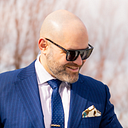Member-only story
Please Tell Me I’m Wrong
When we open ourselves up to new information is when the most important growth happens.
How does it make you feel to be told you’re wrong about something?
It’s natural to get a little defensive. To stand behind your position and argue for it. To hold true to your values and opinions.
Most of the time, this is what you should do. As the old saying goes, “If you don’t stand for something, you’ll fall for anything.”
There is a caveat, though. One that took me quite awhile to grow into.
The caveat is the search for the truth. Valuing facts and evidence that are used in order to develop a worldview and determine a stance on important issues.
To me, what is true is more important than what I think or feel. I am entitled to my own opinions, but I am not entitled to my own facts.
If I walk around thinking that something provably false is actually true, I am living my life in a way that is disconnected from reality, no matter how small the “something” may be.
If this is the case: Please tell me I’m wrong.
Too many of us are walking around closed off to new information. We will dismiss anything that is out of alignment with our worldview due to…
